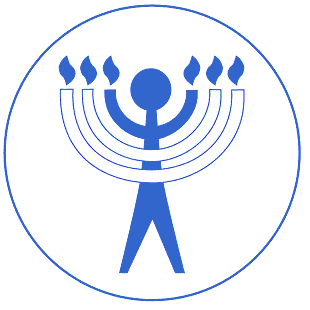The Jewish Humanist, April 1997
Pesakh [Passover] is a Jewish holiday celebrating Jewish liberation. But which liberation?
Priestly and rabbinic authorities linked the old spring fertility festival to the Exodus of the Jews from Egypt The editors of the Torah found the meaning of Passover in the miraculous rescue of the Hebrews from the slavery of Egypt by the Hebrew God Yahveh. They saw this rescue as the primary evidence that Yahveh was indeed the most powerful of all the gods, so powerful that the other gods could not even be regarded as gods.
For the Torah editors whatever freedom there was in the story of the Exodus was the freedom to worship and serve Yahveh in the way that he designated. The covenant at Sinai was not open to discussion and amendment. Only an affirmative response was possible. A negative one would have meant abandonment and destruction.
The story has its problems from a ‘liberation’ point of view. Why did Yahveh allow the Jews to suffer in slavery for four hundred years when his earlier intervention would have prevented so much pain? Why did he harden the heart of Pharoah to resist the Hebrew demands and then punish the Pharoah and his family for a decision that was Yahveh’s responsibility? What is quite clear is that the contemporary meaning we give to the word “freedom” is not part of this story.
Rabbinic Judaism, which cultivated this story in the Haggadah, made it very clear that the freedom celebrated at the festive Seder was not the freedom of personal choice but the freedom and survival of the Jewish nation. That freedom and survival could only be maintained or—if lost—could only be achieved again through obedience to God and the rabbis. Conformity to the Halakha [religious law] was the guarantor of national survival and salvation.
Most of the rival ideologies to Rabbinic Judaism were equally authoritarian. Whether they were Samaritan or Karaite, they demanded the same conformity. If there was any freedom implicit in the Passover story it was the freedom from foreign oppressors. The freedom to deviate from the single path of salvation was not even contemplated.
Of course, throughout the centuries, there were individual Jews who rebelled against the conformity of religious authority. But their voices were rarely recorded. And they were often excommunicated from the people. As late as the middle of the seventeenth century a defiant Jew named Barukh Spinoza was condemned to excommunication for challenging official doctrine concerning the authorship of the Torah and the immortality of the soul.
Spinoza was the true founder of Jewish “liberation.” In his writings he proclaimed the revolutionary doctrine that every person was entitled to be the master of his/her life and choices—and that legitimate government derived its authority from the consent of the governed. Freedom became personal and individual. It was the source of human dignity.
These ideas were part of a new philosophic and social development which we call the Enlightenment. Spinoza was one of its first great teachers. In time the Jews of Europe were enveloped by the power of this movement. The Enlightenment led to the English and French Revolutions. The Revolutions led to Jewish emancipation—not to the emancipation of the Jewish nation, but to the emancipation of the Jewish individual. In the Jewish world a new force emerged. It was led by new scholars who were committed to both the new freedom and the openness of the new science. This initiative was called the Haskalah. Its expert proponents were called maskilim.
These maskilim proposed nothing less than the development of Science of Judaism, a bold attempt to review the Jewish past through the eyes of reason and to reveal a new way of understanding the Jewish experience. They encouraged skepticism and challenge to established authority. They championed change and reform. They brought to Jewish life what Jews were already experiencing in the outer secular world—the pleasure and challenge of personal freedom.
One of the products of the Enlightenment and the Age of Science which followed was the emergence of a new science called Higher Biblical Criticism. That investigation by modern scholars of the stories in the Biblical texts led to conclusions that shocked the Orthodox world. It became clear that many events that pious people assumed were as real as their own bodies were either mythology or distortions of very different events. In the world of the new archaeology and the new Egyptology, very little evidence could be found for the drama of the Exodus. It may have been the case that most Israelites had never gone down to Egypt. It may have been the case that the nation of Israel had not emerged until the time of Saul and David.
But none of this discovery or doubt affects the power of Passover for us as Humanistic Jews. Passover is for us the festival of freedom—not the limited freedom of national survival, but, more importantly, the freedom of personal dignity. The most dramatic liberation of the Jews was not the presumed Exodus from Egypt. It was the power of the Enlightenment which paved the way for the most dramatic achievements of Jews in political reform, social welfare, artistic creativity and intellectual outreach. In the last two centuries the Jews have blossomed in the countries of freedom in a way that the earlier authoritarian ages never allowed. Spinoza is as important to us as Moses…..

